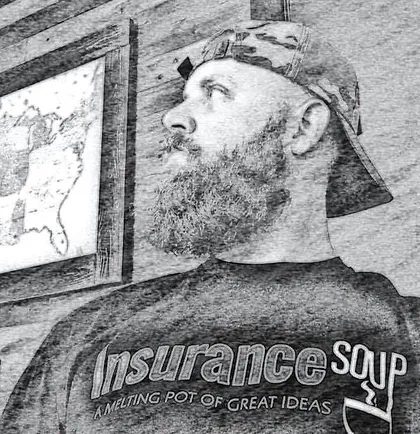While experienced sales reps know that success comes from communicating clearly in terms their prospects can understand, there are numerous slang terms that they reserve for sales meetings and happy hours.
Here are some of the sales slang words and phrases all salespeople have in their arsenal—and why you shouldn’t use insider jargon around potential customers.
BANTA
Methodology for qualifying leads in which sales reps confirm that a prospect has the budget, authority, need, and timeline to buy. If any of those factors aren’t in place, it’s unlikely that you’ll make the sale.
BLUEBIRD
Guaranteed to put you in a cheerful mood, a bluebird is a lucrative sales opportunity that drops into your lap unexpectedly, and without much effort.
BOTTOM OF THE FUNNEL (BOFU)
When a prospect enters the bottom of the sales funnel, they’re nearing the point where they will make a purchase. In other words, they have made it through higher-funnel stages like qualification, and they’re ready to be closed. (See also: Top of the funnel)
BRAG BOOK
A collection of testimonials, case studies, or pictures collected from satisfied customers. A sales rep can present their brag book to prospects to illustrate their prior successes and how they’ve exceeded their clients’ expectations.
BUYING SIGNALS
Cues from a prospect that they’re ready to buy. Buying signals can be either verbal (i.e., asking about price) or non-verbal (i.e., nodding and holding eye contact).
CLOSED QUESTION
The opposite of an open-ended question, a closed question is typically a yes-or-no question that directs a prospect toward making a choice or taking a position. (Example: “Are you happy with your current supplier?”)
DEAL-FLOW
The rate at which sales teams or individual reps obtain new leads and sales opportunities. (See also: MQL and SQL)
DECISION MAKER
The decision maker is the person who ultimately approves a sale or purchase. This is not necessarily the person who appears to be calling the shots; it’s possible that person is actually the gatekeeper.
DRAW
An advance against a sales rep’s future earnings. Sales organizations offer draws to make sure their salespeople are sufficiently compensated when they’re getting started. After receiving a draw, a sales rep’s commissions are used to repay the advance; once it’s fully repaid, a rep can start earning commissions again. (See also: zeroed out) Draws can be recoverable or non-recoverable.
EMOTIONAL SALE
A selling method that attempts to appeal to a buyer’s emotions, either by generating desire and excitement around the product’s benefits, or evoking negative emotions like fear and frustration—pain points that your product or service can alleviate. (See also: intellectual sale)
FAB
An acronym for “features, advantages, and benefits.” Sales reps use this three-part structure to communicate the value of their product or service, by defining its characteristics (features), the positive attributes of those features (advantages), and how the product would enhance the customer’s life or reduce pain points (benefits).
GATEKEEPER
A gatekeeper is someone who limits access to the decision maker. For instance, a gatekeeper may be a personal assistant who relays information back to their boss. Gatekeepers are responsible for filtering out unimportant distractions, which means you have to prove your value to them first.
INTELLECTUAL SALE
As opposed to an emotional sale, an intellectual sale attempts to appeal to a prospect’s logic, and their need for a quick, affordable solution to a problem. An intellectual sale is more “business” than “personal.”
LAND AND EXPAND
“Landing” a sale refers to the initial close, when you bring on a new customer for the first time. “Expanding” means generating even more revenue from the account by upselling or broadening the scope of the service you’re providing. Sales reps need to land and expand in order to generate the most revenue from a given prospect.
MIRRORING
Building rapport with a sales prospect by adopting their body language and speech patterns. Subtlety is key, here. Overdo it, and you’ll come off as ingenuine, or even creepy.
MQLs
MQLs, or marketing qualified leads, refer to prospects that have demonstrated enough interest or engagement to be identified as potential customers by your marketing department. For example, an MQL might be a person who downloads a white paper from your website or has had multiple visits to your pricing page. MQLs are passed along to the sales team where they have the chance to become SQLs.
NSAs
Non-sales-related activities, meaning things that sales reps spend time on that don’t directly lead to sales. This can include administrative tasks and paperwork, or making personal calls and surfing the Internet. Whenever you aren’t prospecting, qualifying, setting up presentations and appointments, or closing, you’re probably engaged in an NSA.
OBJECTIONS
A question or concern a prospect raises about your product or service that could get in the way of closing the sale. Some of the most common sales objections include price (“I can get this cheaper somewhere else”), trust (“I’ve never heard of your company before”), and timing (“I’m just too busy to deal with this right now”). Closing sales depends on knocking down every objection that comes your way.
PUPPY DOG CLOSE
Allowing customers to try out a product with no obligation while they make their decision. The idea is, an uncommitted buyer will fall in love with the product and won’t want to let it go—just like person interested in buying a puppy wouldn’t be able to say “no” after taking one home for a few days.
SALES PREVENTION DEPARTMENT
A term of non-affection used to describe your company’s legal department. Whether it’s multiple rounds of back-and-forth on contracts, or immovability on service level agreements, legal issues often stand in the way of deals getting done, which can ruin a sales rep’s day.
SANDBAGGING
Holding off on closing active deals once you’ve already hit your quota/commission for the month, so that you can more easily hit your numbers the following month.
SIDE SELLING
Selling a complementary product or service to a prospect who is using a competitor for your main product.
SMILE AND DIAL
Cold-calling with a cheerful, positive tone of voice—and yes, a smile. Smiling communicates warmth and trustworthiness over the phone, which makes the prospect less likely to hang up on you. Even if people can’t see your smile, they can hear it.
SQLs
Once a marketing qualified lead has met an organization’s lead qualification criteria to determine if they’re a good customer fit, they become sales qualified leads (or, SQLs). Typically, an MQL would have to show readiness to buy as well as fulfill other elements of the BANT criteria to be promoted to SQLs.
TIRE-KICKER
A prospect who has no intention or ability to buy. It isn’t long before the red flags appear: they don’t have a budget, the purchase is not within their authority, or their timeline is far into the future. Even if they’re genuinely interested in your product or service, tire-kickers are time-wasters.
TIME KILLS ALL DEALS
Simply put, a sale is less likely to happen as more time passes—so the quicker you can knock down objections and move prospects through your funnel, the better. Remember: If a prospect says “let me think about it,”it’s because they haven’t been completely sold yet, and you need to increase your efforts before they slip away for good
TOP OF THE FUNNEL (TOFU)
The start of the buying process. Often attracted by awareness-stage website content, top of the funnel leads have shown a general interest in your product, or are looking for more information on the solutions you provide. TOFU leads need to be qualified and nurtured so they can start moving down the funnel.
UPSELLING
Making a sale more profitable by convincing a customer to purchase a more expensive product than the one they intended to buy, or selling additional services or complementary products to go along with the initial item. Sales reps can turn an average sale into an outstanding one by upselling.
WHALE (OR, WHITE WHALE)
A prospect that has the potential to bring tremendous sales revenue to an organization. Like Moby Dick, whales are big, elusive, and very rare—and sales teams pull out all the stops to land one.
ZEROED OUT
When a sales rep earns enough commission to make their draw balance equal to zero, they have zeroed out their account, and can start earning commissions again.
And there you have it! Even though prospects or customers might seem to understand what you’re talking about during meetings, you should avoid using jargon during sales interactions. Sure, your clients might know what you mean, but the danger is you will either lose them completely or they’ll think you don’t care about them enough to communicate clearly.
.png?width=180&height=65&name=Untitled%20design%20(29).png)




